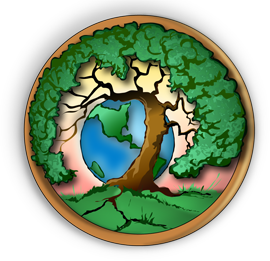Dmitry Orlov’s new book The Five Stages of Collapse just arrived in my mailbox and I promptly read it. I have been reading Orlov for years now and consider him as having one of the most penetrating insights into the current crises the world is in and what is likely to happen as the crises develop further. Permaculturists in general have a very good idea of the problems the world faces and in my opinion have the most practical ideas on how we can adapt ourselves out of the current mess, both individually and collectively. Permaculture is about solutions. Alas, very few people are listening to permaculture’s solutions yet and so we are almost certainly going to go through at least some of the stages of collapse that Orlov describes. Increasing parts of the world are already in various stages of collapse. Take a look at the List of countries by Failed States Index.
Even within supposedly stable countries there are pockets of collapse already, especially in big city slums and among the increasingly large numbers of disenfranchised people.
Orlov’s book’s subtitle “Survivors’ Toolkit” is one of the reasons I recommend you read his book. Orlov gives some good advice on how to survive whatever scale of collapse happens to your neighborhood. What it boils down to is building a network of relationships with trusted people in your neighborhood and area. Who can you trust? Who will keep their word? Building mutual support networks is imperative. Selling your labor in the job market to buy everything you need from the impersonal, globalized market will be less and less tenable for more and more people. Growing food, making and repairing the things you need, setting up local barter systems, etc is what we need. Withdrawing our support and dependence on global supply lines is what we need to be doing and helping other people to do. “Forewarned is forearmed” is an old saying that helps encapsulate why you would read this book.
The five stages that Orlov describes are. 1. Financial collapse, 2. Commercial collapse. 3. Political collapse, 4. Social collapse; and 5. Cultural collapse.
An optimistic person will recognize that the first three stages of collapse can open up avenues for society to create new and better structures and avoid the latter stages of collapse. It won’t be easy. To quote Orlov: “The best-case scenario is that the old rules are consigned to oblivion quickly and decisively. The public at large will not be the major impediment to making the necessary changes. Rather, it will be the vested interests at every level – the political class, the financial elite, professional associations, property and business owners and last, but not least, the lawyers – who will try to block them at every turn. They will not release their grip on society voluntarily, so it is best to make plans to forestall and thwart their efforts. When taking part in community organizing activities, if your envisioned community is to survive the transition to a post-collapse existence, it is important to keep in mind one vital distinction: is this community going to operate under the old rules or the new rules? The old rules will not work, but the new ones might, depending on what they are. You might want to give the new rules some thought ahead of time, perhaps even test them out under the guise of emergency preparation training.”
This brings to mind the work the permaculture-informed organization, Local 2020, is doing in Port Townsend, Washington. https://l2020.org/Home
To order Orlov’s book or read his latest writings visit: https://cluborlov.blogspot.com/







 MICHAEL “SKEETER” PILARSKI is a life-long student of plants and earth repair. His farming career started in 2nd grade and his organic farming career began in 1972 at age 25. Michael founded Friends of the Trees Society in 1978 and took his first permaculture design course in 1982. Since 1988 he has taught 36 permaculture design courses in the US and abroad. His specialties include earth repair, agriculture, seed collecting, nursery sales, tree planting, fruit picking, permaculture, agroforestry, forestry, ethnobotany, medicinal herb growing, hoeing and wildcrafting. He has hands-on experience with over 1000 species of plants. He is a prolific gathering organizer and likes group singing.
MICHAEL “SKEETER” PILARSKI is a life-long student of plants and earth repair. His farming career started in 2nd grade and his organic farming career began in 1972 at age 25. Michael founded Friends of the Trees Society in 1978 and took his first permaculture design course in 1982. Since 1988 he has taught 36 permaculture design courses in the US and abroad. His specialties include earth repair, agriculture, seed collecting, nursery sales, tree planting, fruit picking, permaculture, agroforestry, forestry, ethnobotany, medicinal herb growing, hoeing and wildcrafting. He has hands-on experience with over 1000 species of plants. He is a prolific gathering organizer and likes group singing.